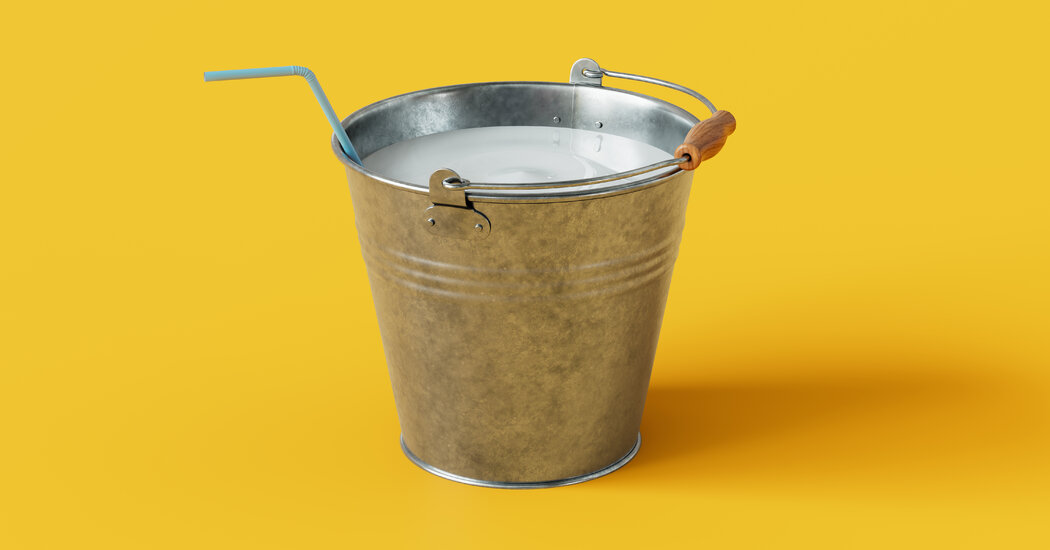Thousands of years ago, after domesticating cows and other ruminants, humans did something remarkable: They began to consume the milk from these animals. Scientists consider mammalian milk to confer a tremendous evolutionary advantage because it allows mothers to feed immature offspring with food well tailored to their needs. With the advent of dairying, humans inserted themselves into this ancient relationship between ruminant mothers and their offspring, diverting this source of nutrition into their own bodies.
Listen to this article, read by Anthony Rey Perez
By consuming the milk of ruminants — possibly after fermenting it — humans found a reliable way to nourish themselves with grass and other tough plant material that they themselves couldn’t digest directly. As a cultural adaptation, dairying was so important, one scientist told me, that whoever invented it deserves to win a Nobel Prize posthumously. Every year.
But living closely with animals and drinking their milk also presents risks, chief among them the increased likelihood that infections will jump from animals to people. Some of humanity’s nastiest scourges, including smallpox and measles, probably originated in domesticated animals. In the 19th century, as industrialization spurred urbanization and mass migration, milk became a major vector of disease. As late as 1938, illnesses from milk still accounted for one-quarter of all infectious diseases contracted from what people ate and drank that year. During this period, newly established health authorities began pushing for milk to be treated by heating it; this simple practice of pasteurizing milk would come to be considered one the great public-health triumphs of the modern era.
Today, however, a small but growing number of Americans prefer to drink their milk raw. And Robert F. Kennedy Jr., Donald Trump’s choice to lead the Department of Health and Human Services, now stands at the vanguard of this movement. Kennedy has said he drinks raw milk and has criticized what he describes as the Food and Drug Administration’s “aggressive suppression” of raw-milk production, among other things. Enthusiasts anticipate that, as H.H.S. secretary, he would make raw milk easier to acquire — although how remains unclear. Federal regulations prohibit the sale of raw milk across state lines, but where it’s legal, raw milk is regulated by state governments, not federal agencies.
In embracing raw milk, Kennedy is following an established trend as much as leading it. The roots of the movement stretch back decades. The small, independent health-food stores my parents frequented in New Mexico in the 1980s, for example, sold raw milk. (We never partook.) But to hear Mark McAfee tell it, the pandemic supercharged demand.
